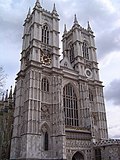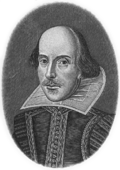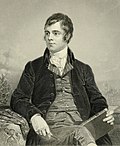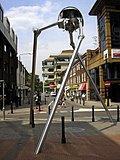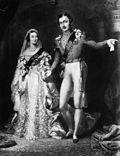Portal:United Kingdom
The United Kingdom Portal
 |
 |
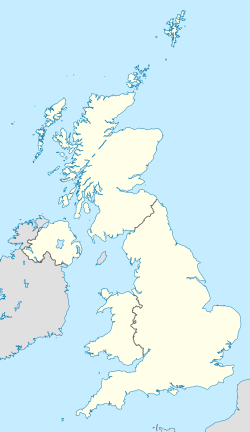
| |
The United Kingdom of Great Britain and Northern Ireland, commonly known as the United Kingdom (UK) or Britain, is a country in Northwestern Europe, off the coast of the continental mainland. It comprises England, Scotland, Wales, and Northern Ireland. The UK includes the island of Great Britain, the north-eastern part of the island of Ireland, and most of the smaller islands within the British Isles, covering 94,354 square miles (244,376 km2). Northern Ireland shares a land border with the Republic of Ireland; otherwise, the United Kingdom is surrounded by the Atlantic Ocean, the North Sea, the English Channel, the Celtic Sea, and the Irish Sea. The UK maintains sovereignty over the British Overseas Territories, which are located across various oceans and seas globally. The United Kingdom had an estimated population of over 68.2 million people in 2023. The capital and largest city of both England and the United Kingdom is London. The cities of Edinburgh, Cardiff, and Belfast are the national capitals of Scotland, Wales, and Northern Ireland, respectively.
The UK has been inhabited continuously since the Neolithic. In AD 43, the Roman conquest of Britain began; the Roman departure was followed by Anglo-Saxon settlement. In 1066, the Normans conquered England. With the end of the Wars of the Roses, the English state stabilised and began to grow in power, resulting by the 16th century in the annexation of Wales, and the establishment of the British Empire. Over the course of the 17th century, the role of the British monarchy was reduced, particularly as a result of the English Civil War. In 1707, the Kingdom of England and the Kingdom of Scotland united under the Treaty of Union to create the Kingdom of Great Britain. In the Georgian era, the office of prime minister became established. The Acts of Union 1800 incorporated the Kingdom of Ireland to create the United Kingdom of Great Britain and Ireland in 1801. Most of Ireland seceded from the UK in 1922 as the Irish Free State, and the Royal and Parliamentary Titles Act 1927 created the present United Kingdom.
The UK became the first industrialised country and was the world's foremost power for the majority of the 19th and early 20th centuries, particularly during the Pax Britannica between 1815 and 1914. The British Empire was the leading economic power for most of the 19th century, a position supported by its agricultural prosperity, its role as a dominant trading nation, a massive industrial capacity, significant technological achievements, and the rise of 19th-century London as the world's principal financial centre. At its height in the 1920s, the British Empire encompassed almost a quarter of the world's landmass and population, and was the largest empire in history. However, its involvement in the First World War and the Second World War damaged Britain's economic power, and a global wave of decolonisation led to the independence of most British colonies. (Full article...)
Featured article
The Peterloo Massacre occurred at St Peter's Field, Manchester, England, on 16 August 1819, when cavalry charged into a crowd of 60–80,000 gathered at a meeting to demand the reform of parliamentary representation. The Manchester Patriotic Union, a group agitating for parliamentary reform, organised a demonstration to be addressed by the well-known radical orator Henry Hunt. Shortly after the meeting began, local magistrates called on the military to arrest Hunt and several others on the hustings with him, and to disperse the crowd. Cavalry charged into the crowd with sabres drawn, and in the ensuing confusion, 15 people were killed and 400–700 were injured, among them many women and children. The massacre was given the name Peterloo in ironic comparison to the Battle of Waterloo, which had taken place four years earlier. Historian Robert Poole has called the Peterloo Massacre one of the defining moments of its age. In its own time, the London and national papers shared the horror felt in the Manchester region, but Peterloo's immediate effect was to cause the government to crack down on reform, with the passing of what became known as the Six Acts. It also led directly to the foundation of The Manchester Guardian (now The Guardian), but had little other effect on the pace of reform. (Full article...)
Featured biography
George I was King of Great Britain and Ireland, from 1 August 1714 until his death. At the age of 54, he ascended the British throne as the first monarch of the House of Hanover. Although many bore closer blood-relationships to the childless Queen Anne, the Act of Settlement 1701, which prohibits Catholics from inheriting the throne, designated her cousin, Sophia of Hanover, as heiress to the throne. Sophia was Anne's closest living Protestant relative but died a matter of weeks before Anne leaving the Protestant succession to her son, George. In reaction, the Jacobites attempted to depose George and replace him with Anne's Catholic half-brother, James Francis Edward Stuart, but their attempts failed. During George's reign in Britain, the powers of the monarchy diminished and the modern system of Cabinet government led by a Prime Minister underwent development. Towards the end of his reign, actual power was held by Sir Robert Walpole. George died on a trip to his native Hanover, where he was buried. (Full article...)
General images -
Subportals
WikiProjects
Things you can do
- Visit the British Wikipedians' notice board.
- The noticeboard is the central forum for information and discussion on editing related to the United Kingdom.
- Comment at the British deletion sorting page.
- This page lists deletion discussions on topics relating to the United Kingdom.
Featured pictures
Did you know -

- ... that the 1st Armoured Division of the British Army chose a white rhinoceros on a black oval as their insignia?
- ... that David P. Davies was the chief test pilot for the United Kingdom's Civil Aviation Authority for 33 years?
- ... that a £142 wine fridge was smuggled into Downing Street on 11 December 2020, during the height of the COVID-19 lockdown in the United Kingdom?
- ... that Ed Miliband retweeted "Chaos with Ed Miliband" with a clown emoji during the October 2022 United Kingdom government crisis?
- ... that "one of the finest cut brick façades" in the United Kingdom has been partially obscured by scaffolding for four years, as funds are raised for its repair?
- ... that the 2023 United Kingdom student protests were organised on TikTok and Snapchat?
In the news
- 4 May 2025 –
- Five people, including four Iranian citizens, are arrested for planning to carry out a terrorist attack at a single location in London, United Kingdom. Separately, three other Iranian men are arrested in London on suspicion of a national security offense as part of an unrelated investigation. (CTV News)
- 1 May 2025 –
- The world's oldest person, Brazilian nun Inah Canabarro Lucas, dies at the age of 116 years and 326 days. The new oldest living person is British supercentenarian Ethel Caterham, who is the last person born in the 1900s decade, the last living subject of King Edward VII, and the oldest British person ever. (BBC News) (The Telegraph)
- 1 May 2025 – 2025 United Kingdom local elections
- The United Kingdom holds local elections, as well as a parliamentary by-election in the Runcorn and Helsby constituency. (BBC News)
- 16 April 2025 –
- The United Kingdom suspends the import of cheese and meat products from the European Union to prevent the spread of foot-and-mouth disease. (BBC News)
- 16 April 2025 – Transgender rights in the United Kingdom, For Women Scotland Ltd v The Scottish Ministers
- The Supreme Court of the United Kingdom rules that legal gender is based upon biological sex for the purposes of the Equality Act 2010. (BBC News)
- 15 April 2025 – Sudanese civil war, Foreign aid to Sudan
- The European Union and its member states pledge €522 million (US$590 million) and the United Kingdom pledges £120 million (US$141 million) in humanitarian aid to Sudan to deliver food and supplies to over 650,000 internally displaced Sudanese people affected by the fighting between the Rapid Support Forces and the Sudanese Armed Forces. The two groups also call for an immediate ceasefire to end the war. (DW) (AP)
Categories
Other UK-connected Wikipedias
Wikimedia
The following Wikimedia Foundation sister projects provide more on this subject:
-
Commons
Free media repository -
Wikibooks
Free textbooks and manuals -
Wikidata
Free knowledge base -
Wikinews
Free-content news -
Wikiquote
Collection of quotations -
Wikisource
Free-content library -
Wikiversity
Free learning tools -
Wikivoyage
Free travel guide -
Wiktionary
Dictionary and thesaurus





